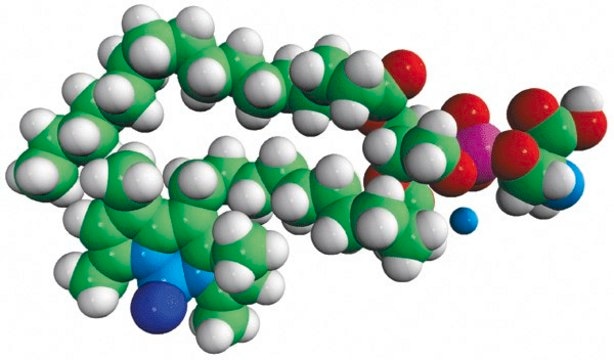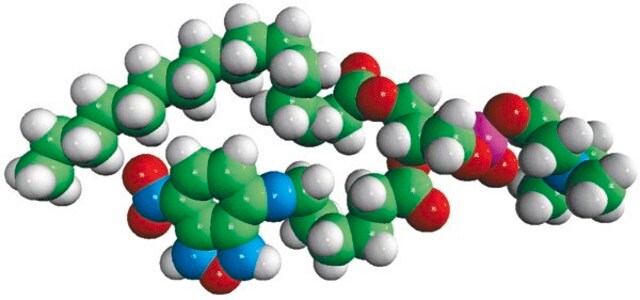810192C
Avanti
16:0-06:0 NBD PS
Avanti Research™ - A Croda Brand 810192C
Synonyme(s) :
1-palmitoyl-2-{6-[(7-nitro-2-1,3-benzoxadiazol-4-yl)amino]hexanoyl}-sn-glycero-3-phosphoserine (ammonium salt)
About This Item
Produits recommandés
Pureté
>99% (TLC)
Forme
liquid
Conditionnement
pkg of 1 × 1 mL (810192C-1mg)
Fabricant/nom de marque
Avanti Research™ - A Croda Brand 810192C
Concentration
1 mg/mL (810192C-1mg)
Conditions d'expédition
dry ice
Température de stockage
−20°C
Description générale
Application
Actions biochimiques/physiologiques
Conditionnement
Informations légales
Mention d'avertissement
Danger
Mentions de danger
Classification des risques
Acute Tox. 3 Inhalation - Acute Tox. 4 Oral - Aquatic Chronic 3 - Carc. 2 - Eye Irrit. 2 - Repr. 2 - Skin Irrit. 2 - STOT RE 1 - STOT SE 3
Organes cibles
Central nervous system, Liver,Kidney
Classe de danger pour l'eau (WGK)
WGK 3
Certificats d'analyse (COA)
Recherchez un Certificats d'analyse (COA) en saisissant le numéro de lot du produit. Les numéros de lot figurent sur l'étiquette du produit après les mots "Lot" ou "Batch".
Déjà en possession de ce produit ?
Retrouvez la documentation relative aux produits que vous avez récemment achetés dans la Bibliothèque de documents.
Notre équipe de scientifiques dispose d'une expérience dans tous les secteurs de la recherche, notamment en sciences de la vie, science des matériaux, synthèse chimique, chromatographie, analyse et dans de nombreux autres domaines..
Contacter notre Service technique









